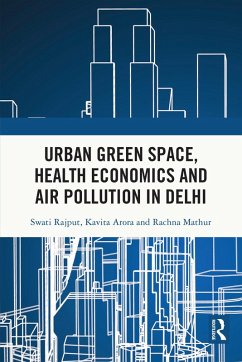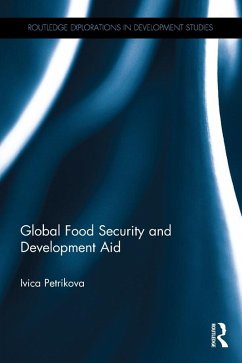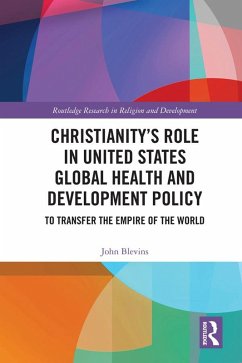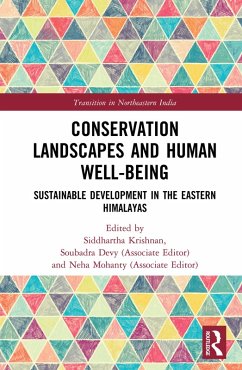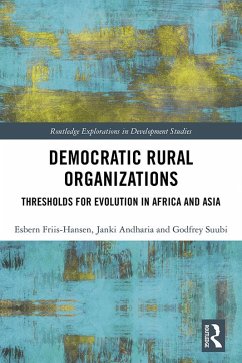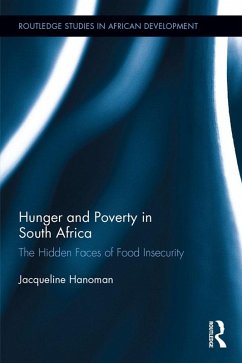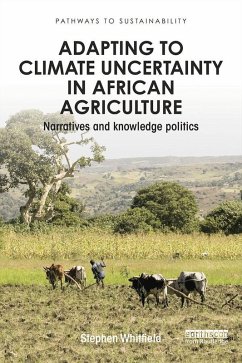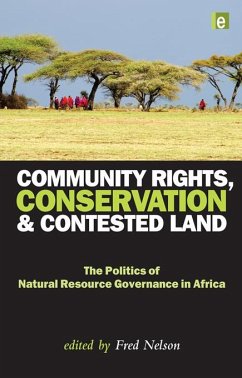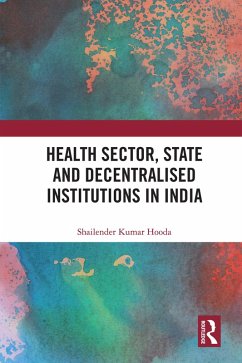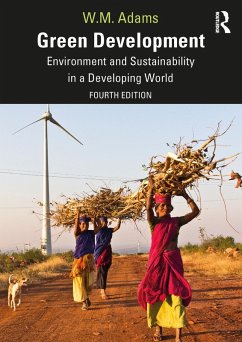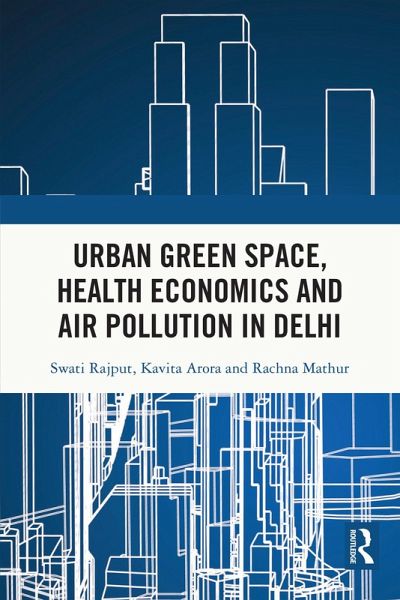
Urban Green Space, Health Economics and Air Pollution in Delhi (eBook, PDF)
Versandkostenfrei!
Sofort per Download lieferbar
41,95 €
inkl. MwSt.
Weitere Ausgaben:

PAYBACK Punkte
21 °P sammeln!
This book looks at the ecological stress on cities and engages with challenges of reducing vulnerabilities and risks of pollution on the health, well-being and livelihoods of people living in developing countries. Cities are the world's highest energy consumers and the biggest producers of toxic wastes and pollutants.With an emphasis on the environmental issues facing the city of Delhi, the volume focuses on steps to preserve and manage the city's urban green spaces. It explores the concept of urban green spaces and their economic, social, health, and psychological significance in cities. Draw...
This book looks at the ecological stress on cities and engages with challenges of reducing vulnerabilities and risks of pollution on the health, well-being and livelihoods of people living in developing countries. Cities are the world's highest energy consumers and the biggest producers of toxic wastes and pollutants.
With an emphasis on the environmental issues facing the city of Delhi, the volume focuses on steps to preserve and manage the city's urban green spaces. It explores the concept of urban green spaces and their economic, social, health, and psychological significance in cities. Drawing from their fieldwork and research in Delhi, the authors identify the sources of pollution in the city and access the role of urban green spaces in countering adverse effects. They further examine the relationship between green spaces and social and economic development, urban health, and urban governance. They highlight the good practices followed by other global cities. The volume also offers suggestions and policy recommendations to reverse and recover ecological balance in cities.
This book will be of interest to students and researchers of environment and ecology, public health, urban planning and governance, development studies, urban geography, urban sociology, resource management and health economics. It will also be useful for policy makers, and NGOs working in the areas of sustainability, urban planning and management and environmental preservation.
With an emphasis on the environmental issues facing the city of Delhi, the volume focuses on steps to preserve and manage the city's urban green spaces. It explores the concept of urban green spaces and their economic, social, health, and psychological significance in cities. Drawing from their fieldwork and research in Delhi, the authors identify the sources of pollution in the city and access the role of urban green spaces in countering adverse effects. They further examine the relationship between green spaces and social and economic development, urban health, and urban governance. They highlight the good practices followed by other global cities. The volume also offers suggestions and policy recommendations to reverse and recover ecological balance in cities.
This book will be of interest to students and researchers of environment and ecology, public health, urban planning and governance, development studies, urban geography, urban sociology, resource management and health economics. It will also be useful for policy makers, and NGOs working in the areas of sustainability, urban planning and management and environmental preservation.
Dieser Download kann aus rechtlichen Gründen nur mit Rechnungsadresse in A, B, BG, CY, CZ, D, DK, EW, E, FIN, F, GR, HR, H, IRL, I, LT, L, LR, M, NL, PL, P, R, S, SLO, SK ausgeliefert werden.




